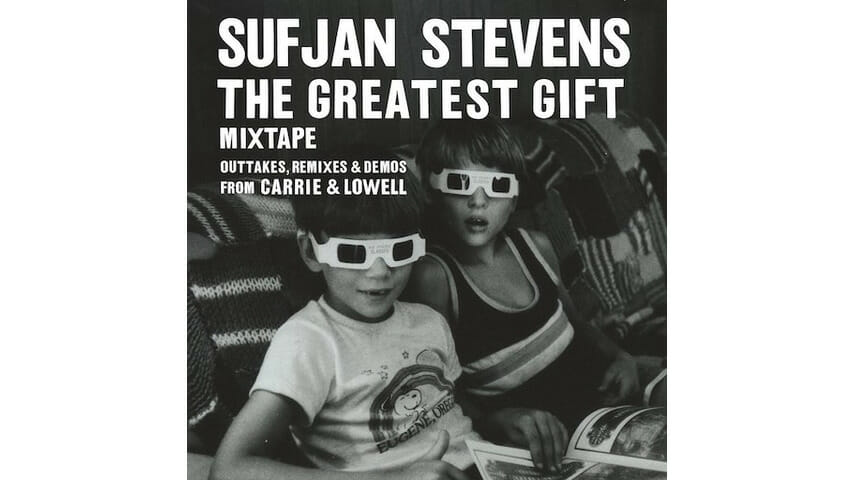Sufjan Stevens: The Greatest Gift

Sufjan Stevens’ most recent proper album, Carrie & Lowell, was one of the very best musical works of 2015. Devastatingly sad but steeped in hope, it’s a 11-track meditation on Stevens’ strained relationship with his mother and his reckoning with her death.
Presented through sparse arrangements, quivering falsetto, and vivid narratives and allusions, Carrie & Lowell spills over with tangible emotion. It was also a welcome return to the gentle folk-pop style that Stevens used on his breakthrough albums of the mid-2000s, after forays into electronica, neo-classical music, mixed media experiments, Christmas jingles and so on. (Sufjan Stevens zigs when you expect him to zag. Always.)
For anyone who dove deep into Carrie & Lowell’s riches, Stevens’ new release—a “mixtape” of tracks connected to the project, called The Greatest Gift—should be tantalizing. If not for the demos and the remixes, then certainly for the four unreleased songs that come from the same sessions that produced the album. The best-case scenario: four songs that meet the standard set on Carrie & Lowell. The worst case: four songs that should’ve stayed on the cutting-room floor. Either way, they’re worth hearing.
The opener of The Greatest Gift is the strongest of the four, a seven-minute collision of fluttery fingerpicking and Oregon folklore called “Wallowa Lake Monster” that, sonically, bridges the gap between Carrie & Lowell’s austerity and Stevens’ grander inclinations. It references the biblical sea monster Leviathan, Nez Perce Indian Chief Joseph, demons and peace lilies, and it ends with three minutes of angels singing amid synth zaps. It is stunningly gorgeous.
-

-

-

-

-

-

-

-

-

-

-

-

-

-

-

-

-

-

-

-

-

-

-

-

-

-

-

-

-

-

-

-

-

-

-

-

-

-

-

-








































